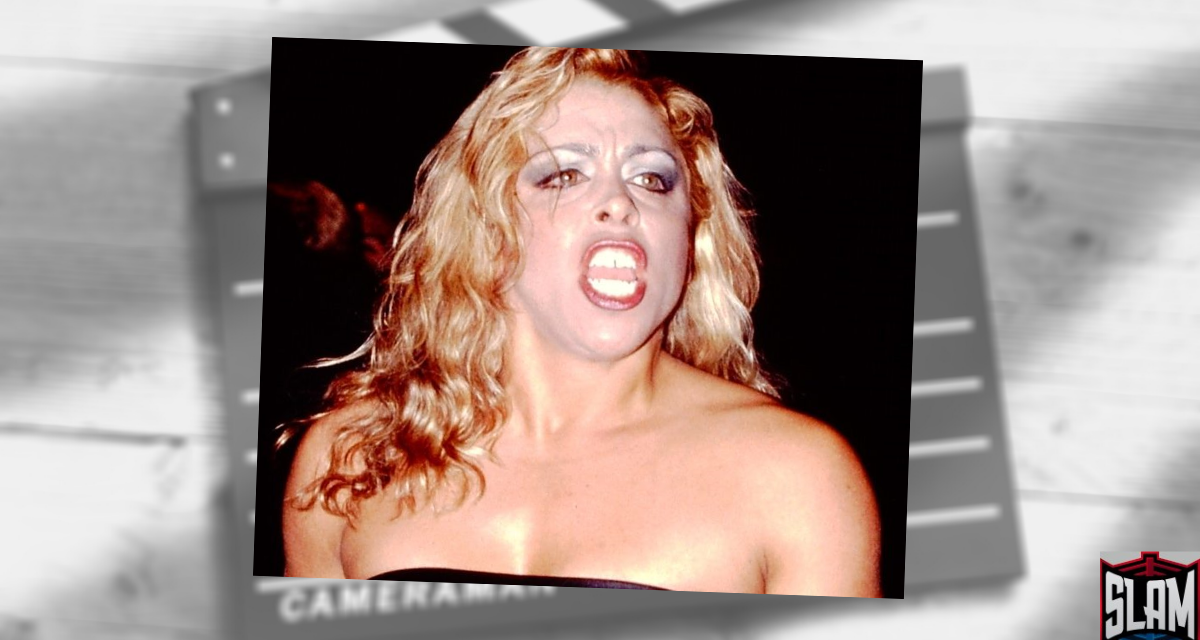The original ECW alum has a vision for the future of pro wrestling: safer for the wrestlers, and more accountability for the promoters.
I have spoken with Angel Orsini, who was cast as The Prodigette by Paul Heyman in the waning days of ECW and later dubbed herself Riptide in the ring, twice this year. The first time was in relation to her business partnership with Christopher Annino (read about their filmmaking and other ventures here), but the conversation also delved into how the structure of the wrestling industry looks from the perspective of the in-ring worker.
Based on that chat, we spoke again not long after Joe Biden won the presidency of the United States, because of this tweet by former presidential hopeful Andrew Yang:
If I’m not the Secretary of Labor I’m pretty confident I’ll have his or her number to talk about the ridiculous classification of WWE wrestlers as independent contractors while controlling their name and likeness for years, even for something as benign as Cameo.
— Andrew Yang🧢🇺🇸 (@AndrewYang) September 5, 2020
With a college education in labour relations and human resources, a personal understanding of how the screen actors’ guild template could also apply to wrestlers, and having suffered a life-changing injury in a car crash that would threaten her in-ring career, Orsini has a unique perspective on the nature of wrestling as an occupation.
“I’ll be glad when things change and we get back to some normalcy,” Orsini opens, in reference to the unpredictable nature of navigating 2020. It’s also a bit of a double-entendre, though, as “change” is something that Orsini feels the wrestling business desperately needs to do to protect its workers, and “normalcy” is what’s already in place for other sports and acting industries.
Orsini’s passion for a better model of operations for wrestling, easily evident in her voice, have developed over time since she debuted in 1996 in a match against Joanie Laurer, the soon-to-be “Ninth Wonder of the World” Chyna in the WWF. Her time on the independent circuit provided Orsini with ground-level experience, while her business acumen allows her to understand the complexities of the bigger companies from afar.
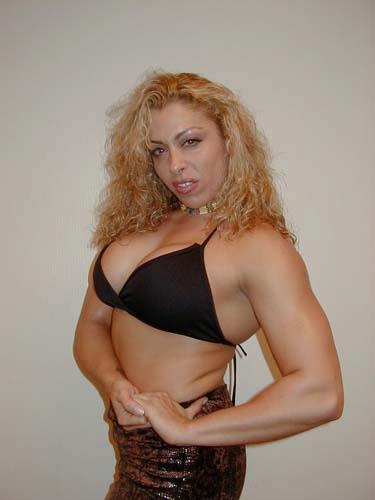
Orsini in an ECW promotional photo as The Prodigette.
And Orsini’s not timid with her opinions.
“I have very strong feelings based on my experience in wrestling that too many people in power in wrestling use that position to get people to compromise themselves,” she begins. “And, if you’re a woman, they do it as much as you can to compromise yourself sexually. There’s a huge difference between being a movie star and being a wrestler. As an actor or actress it can almost be worth it. The Screen Actors Guild union is one of the best unions. You can have a great career if you have talent and you show what you’re made of. In wrestling it doesn’t work that way. It’s a totally different beast.”
Orsini and I are barely into our first conversation, and she’s off and running. Her statements, at times broad and at others very specific, roll out in quick succession. It doesn’t sound rehearsed, however; more like stuff that’s been bubbling up inside her for so long that she can rattle off multiple observations and frustrations without skipping a beat.
“The system in acting is you cut your teeth in some independent stuff, you do a good job, and you get recognized for that talent,” she continues. “In acting the culture is to celebrate talent. In wrestling people fear upcoming talent. They don’t want to cultivate it unless it’s their own student that’s paying them. When you do a good job on an independent film, you get moved on to union jobs, and then you join the union and you can have a nice career.”
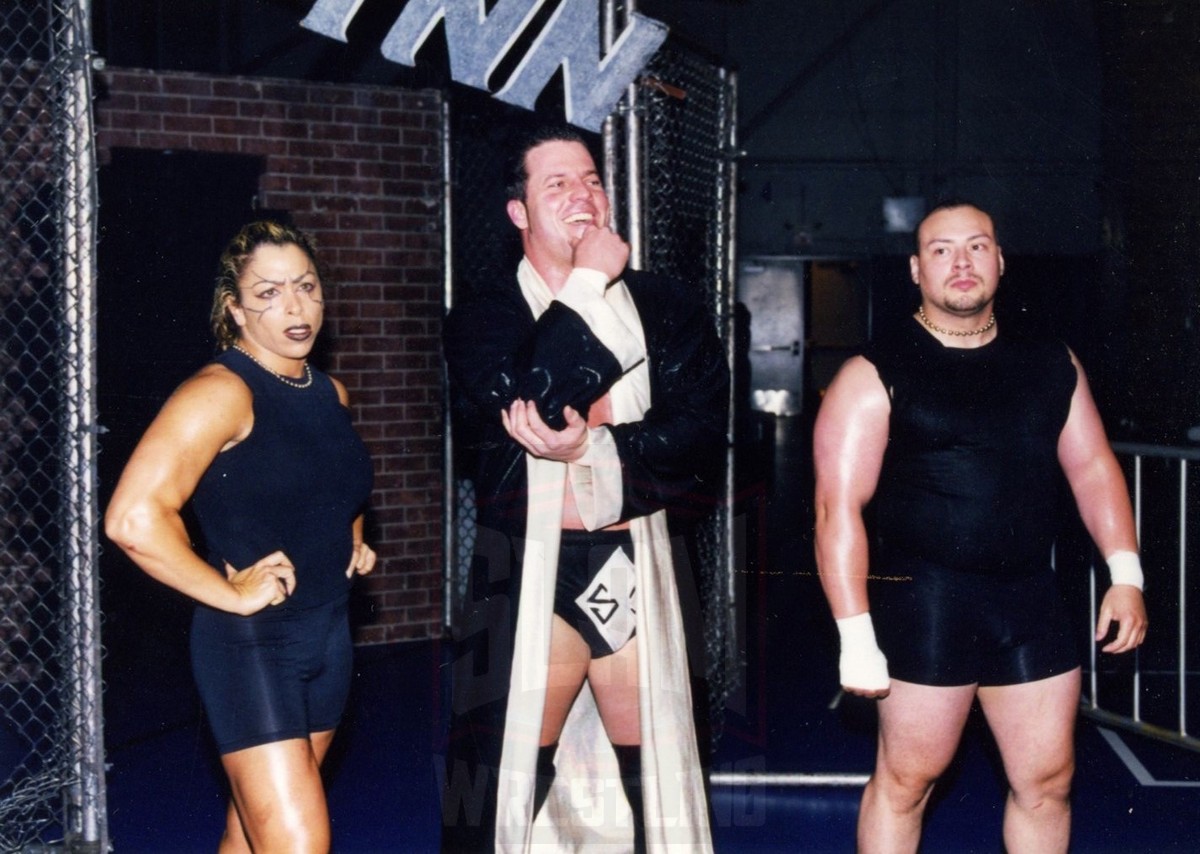
In ECW, Angel Orsini was The Prodigette, with Simon Diamond, and The Prodigy Tom Marquez. Photo by George Tahinos, https://georgetahinos.smugmug.com
By contrast, Orsini laments the lack of structure for how to forge a career path in wrestling, suggesting that, in the absence of a standard procedure, young wrestlers can get lost in the woods. “People are still expected to work for free, drive here, drive there, with no guarantee or anything because it’s very random,” she says. “There are good people in wrestling, but think about that — you have to depend on the character of a particular person, and you have no way of knowing it until you work with them. You have to kiss a lot of frogs to find your prince.”
While it’s easy to look at the life of a young, independent wrestler as challenging and filled with roadblocks, I ask if it isn’t true that young actors trying to break into the system will face the same issues. “In film, if someone’s an asshole, people will say, ‘You don’t want to work with them’; in wrestling, people won’t say that because if they say one word about anybody they may never get work again. There’s no reason why wrestling in general cannot be more like acting, maybe not having a union but having more of a guild or association that provides some guidance, leadership, and structure.”
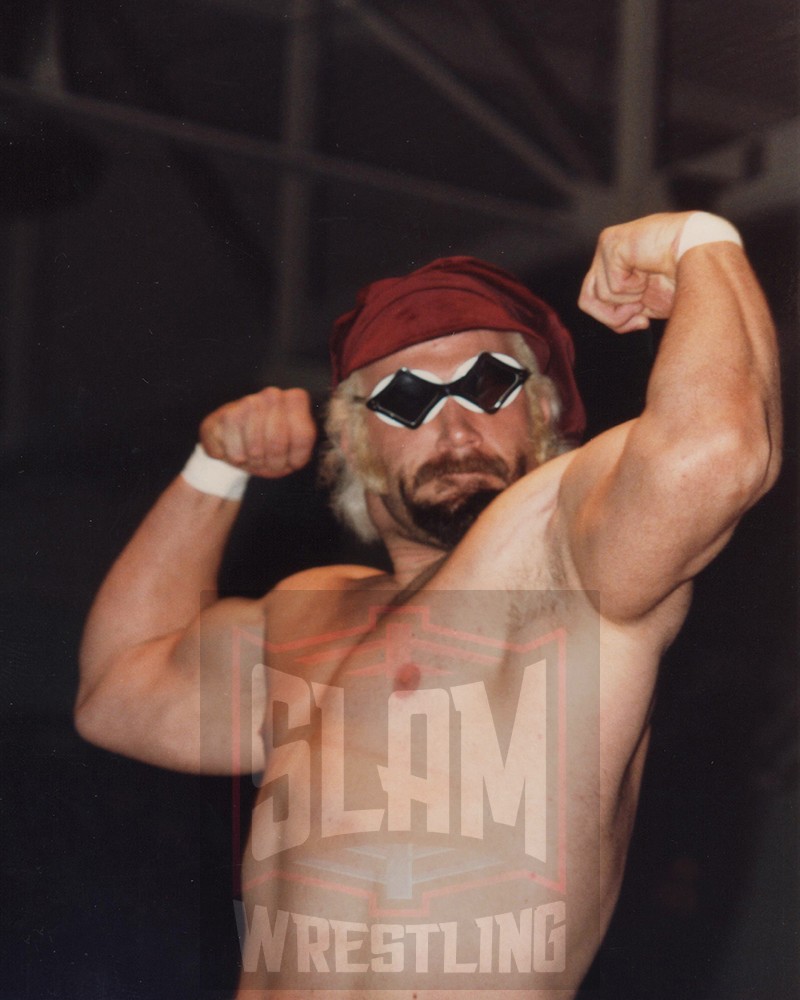
Jesse “The Body” Ventura flexes in AWA action. Photo by Joyce Paustian
Orsini is not the first person to raise the issue of unionization or professional standards. Jesse Ventura has spoken often of his attempt to rally the wrestlers into forming a union, only to receive little support from the wrestlers themselves and intimidation from Vince McMahon. Most recently, of course, Thea Trinidad (Zelina Vega) tweeted a simple (but emphatic) statement in support of unionization, and hours later was tweeting again in response to her dismissal from WWE.
So, I raise the question of whether it will ever happen organically if it hasn’t happened by now, or if something dramatic, like Yang’s promised mission to force change upon the wrestling industry, is needed. Orsini believes that the reason it hasn’t happened is simple, and so is the reason that it might be different this time.
“The people that could do it don’t have the vision, or they’re afraid to,” Orsini proposes. “You do have a possibility now for real change to occur. I think you have a lot of intelligent young people who are so angry and thirsty for their dream, but the reality of that dream is that you’re going to be used by this corporation and, when you can’t be used anymore, they’re going to spit you out and they’re not going to care at all that you didn’t protect yourself and get as much as you could in your time.”
“I know what it takes to get there,” she continues. “I also know how they can be so obsessed with getting there that they forego all self-interest and sacrifice their bodies. That’s admirable that they genuinely give 100% of themselves, but they shouldn’t have their whole life poured out like water on the floor only to be mopped up and sent down the drain.”
“People in this business, in power, will do that to you if you let them.”
Again, Orsini speaks from a place of intellectual observation as well as personal experience. She relays stories to me about going up against the wall put in place by people in power, as well as struggling against the type of random misfortune that can’t be predicted or planned for.
In 2001, Orsini suffered debilitating injuries when her car was t-boned going through an intersection. Orsini was pulled out from the vehicle and, in a slightly cruel twist of fate, was removed from the scene by stretcher — the first time that the-then ECW wrestler had ever needed one. Although the first thing that her doctors told her was that she wouldn’t wrestle again, Orsini met the challenge head-on, returned to the ring six months later, and emerged with what she describes as a new lease on life.
“It was a bit of a spiritual crisis when it happened,” she recalls. “I was doing all the right things and my career was moving forward. I was in excruciating pain. My ribs had been bruised so bad and every single vertebrae, from my neck to my hips, had moved. I had muscle spasms on my face and on the bottom of my foot. If I was sitting, standing, lying down, it doesn’t matter. If I was breathing, I was in pain. I wouldn’t take pain pills; I have seen about twenty of my friends die because of an addiction to painkillers.”
“You can’t get to a place of wholeness and peace until you get rid of all the negativity and doubt.”
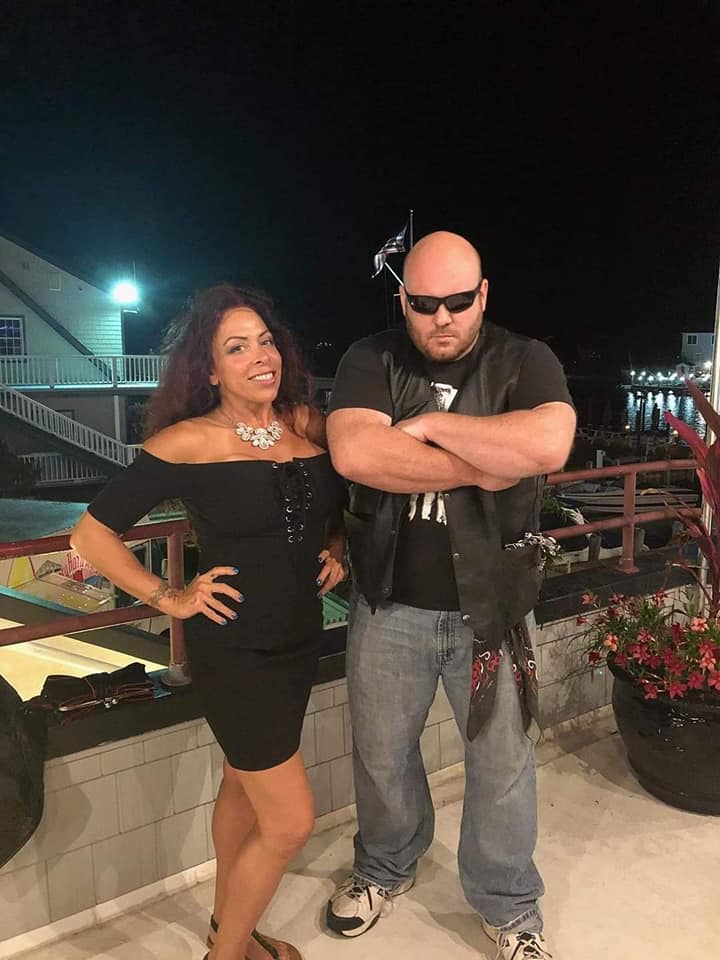
Orsini and Annino: now a tag team in the film business.
And yet, the business that Orsini fought to re-enter was still not taking care of her in ways that she knew it could. As we circle back around to how wrestlers, as employees, are beholden to promoters to work in a safe and respectful environment, she details struggles that are deeper than wins or losses, or even a paycheque.
“I have fought against sexual discrimination and harassment,” she begins. “I’ve been fired because I wouldn’t have sex with people. Who wants to work in that environment? I have literally busted my bones. You go through all that to prove your integrity to the people you worked with to let them know that you’ll hurt your body before you hurt them, and to show the fans that even if I shatter my foot I’m still going to finish my match. But I felt that it wasn’t reciprocated by the people who I need to take care of me.”
As mentioned off the top, Orsini has transitioned from wrestling into filmmaking, but still has strong ties to wrestling. Understandably, she watched closely as the wrestling business followed in Hollywood’s footsteps earlier this year with the Speaking Out movement, that saw wrestlers, primarily female, bring stories of sexual, abuse, intimidation, and harassment to light. She knows it has been far too long in arriving.
“I would say that it should have happened in wrestling before it happened in acting because it has been very abusive,” Orsini argues. “They have taken a lot of liberties with people. That’s what great about unions — they have standards. Unions set the safety standard for hazard pay for doing something more dangerous than their normal job.”
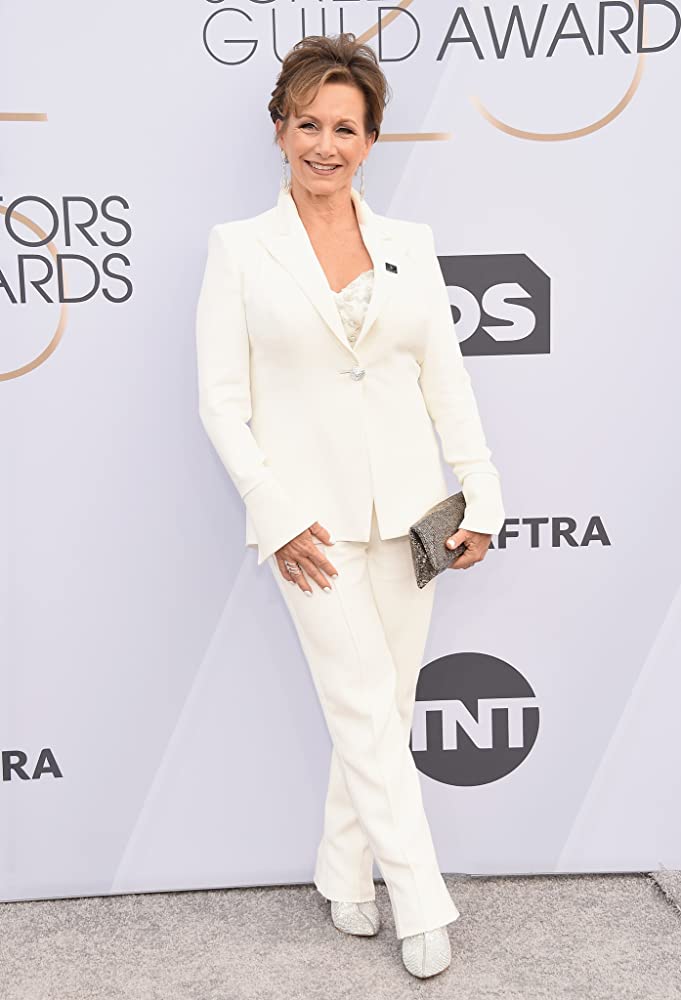
Gabrielle Carteris, President of SAG-AFTRA, has said that it’s time to look into wrestlers’ statuses as performers. Photo: IMDB
I tell Orsini, making sure to let her know that I’m not being sarcastic, that I remember my friends and I would make jokes about wrestling’s “hazard pay” system. Someone’s payrate would have to go up, for example, if thumbtacks were introduced to the match. How then, I ask Orsini, do you apply safety regulations and compensation strategies to a business that is, at its very core, dangerous?
Her response is simple. “I would say it’s going to look a lot like what stunt workers have set up for SAG-AFTRA,” she suggests, referring to the joint Screen Actors Guild and American Federation of Television and Radio Artists. “Every major professional sport has a union that is able to set safety and pay standards, and get health insurance. They are legitimate businesses. Not all independent wrestling promotions are really legitimate businesses.”
In bringing up the independent wrestling scene, I raise one of the concerns that always comes about with the discussion of wrestler unionization: that it will benefit the wrestler, bring the major federations in line, but ultimately be to the detriment of smaller promotions. Orsini doesn’t have much patience for that theory.
“You have a lot of independent promoters that are always going to cry that they’re not making enough money, and that’s always been their story,” she says, almost sighing.
“The ones that are really struggling, they need to be more entrepreneurial. If they’re struggling that badly, maybe they shouldn’t be a promoter. If you’re going to go under because you have to pay people what they should be paid, maybe the job isn’t really for you. And they’re the ones that usually put the wrestlers in the most dangerous positions.”
As we wrap things up, it’s easy to listen to Orsini rail against the industry and consider her to be bitter about her wrestling past, and not many would blame her if she was. Instead, it’s clear that her desire to see change come to wrestling is based on her love of the business, not any wish to see it brought down in any way. “I absolutely love every second that I’m in the ring, and I love the fans,” she gushes, once again sounding earnest and not rehearsed. “I do what I do because I love it, but also because the fans deserve it.”
She promises that she’ll be keeping a close eye on Andrew Yang and Thea Trinidad, and is excited for the prospect of a new generation of wrestlers reaping rewards that she could only dream of. And she sums up the changing labour environment in wrestling terminology as succinctly as possible: with the feud of 2021 perhaps already set to be promoter versus wrestler in ways that Vince McMahon and Steve Austin never dreamt of.
“What Andrew Yang is now pointing out, that they’re telling you in your long-term contract that you have to ditch streaming income or you will forgo your earnings or face penalties, well, that’s no longer talking like you’re an independent contractor,” Orsini says. “They have huge profit margins and they treat you like a farm animal. They’re making the wrestlers the baby faces and making themselves the heel, but because it’s real life I don’t think it’s going to turn out the way they think.”
After so many swerves and false-finishes, maybe the end of this match-up is finally in sight.
RELATED LINKS:
Follow Angel Orsini on Twitter
Visit Angel Orsini & Christopher Annino’s Tag Team Friendship Productions page on Facebook
Visit The New England Music Hall of Fame’s page on Facebook
